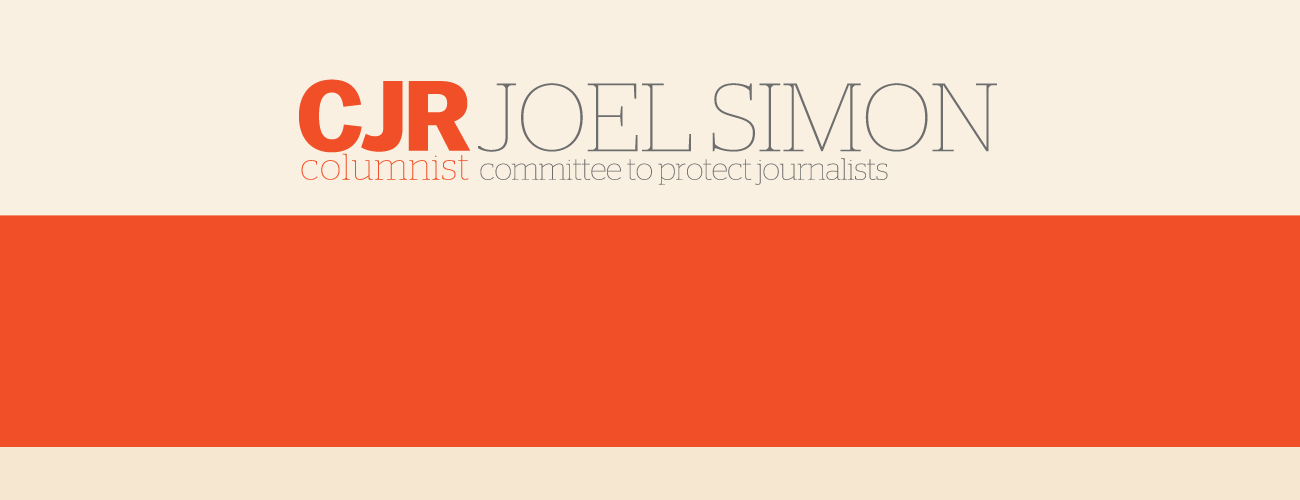When it comes to political campaigns, journalists traditionally serve as the referees, covering the action but not taking sides. There is one issue, however, on which journalists might be forgiven for showing preference–choosing who among the candidates is best for the media. For anyone trying to see how the candidates measure up, here’s a scorecard to help them decide. Up to five points are awarded for policies or actions that benefit the media; likewise, up to five points are subtracted when they are detrimental.
Trump
He’s good–make that great–for the media’s bottom line. In fact, Trump may be the successful revenue model the industry has been searching for. His campaign is attracting record viewers for big events, from debates to primary nights, and those clicks and eyeballs are being monetized on TV stations and news sites around the world. If elected president, Trump can reliably be expected to engage in outrageous antics, make bizarre statements, offend large groups of people, and generate controversy at every turn. This produces nothing but money if you’re in the news business. As CBS chairman Les Moonves noted about this year’s campaign season, “It may not be good for America, but it’s damn good for CBS.”

He wants to make it easier to sue journalists for libel. Trump has promised that when he’s president media companies like The New York Times and The Washington Post will have lots of “problems” in the form of libel suits. “We’re going to open up libel laws, and we’re going to have people sue you like you’ve never got sued before,” Trump said at Texas rally in February.

His presidency would be a leakers’ paradise. A Trump presidency is likely to generate tremendous resistance from within the other institutions of government and the bureaucracy. That circumstance breeds leakers, who want to use the media to trumpet their side and voice their opposition.

Trump is an admirer of serial press freedom violator, Vladimir Putin. Trump has praised Putin as a “leader” and said there is “no evidence” that Putin is responsible for the killing of journalists in Russia. This is technically true, but it is a bit like saying there is no evidence that the mob killed Jimmy Hoffa.

Trump thinks journalists are disgusting. Trump has variously denounced journalists as “dishonest,” “scum,” and “sleaze.” This kind of overheated rhetoric could be dismissed, except that Trump supporters seem to take it as license to insult, attack, smear, and heckle journalists and harass them online. In one well-reported incident, Trump’s Secret Service detail roughed up a Time photographer who stepped outside the press bullpen at a rally.

Trump returns calls. He obviously makes a habit of phoning into cable shows, but will also return calls from from Web and print reporters. On the other hand, there’s a reason for the personal callbacks: Trump has a slim media operation and lacks the usual bevy of spokespeople and surrogates.

Clinton
She stood up for press freedom around the world. As Secretary of State she defended the rights of persecuted journalists and spoke out regularly on press freedom violations, notably in Russia and Turkey. However, her approach was inconsistent, and countries like China, where the strategic interests were paramount, did not receive the same level of criticism.

She almost never talks to beat reporters. Clinton is notorious for controlling access to her and her close confidants, and some prominent journalists on the Clinton beat have never been granted interviews.

She defended Internet freedom. As Secretary of State, Clinton launched a US government effort to defend “the right to connect,” declaring in a 2011 speech: “We are convinced that an open internet fosters long-term peace, progress, and prosperity.”

She’s not defending it lately. With the Islamic State and other militant groups using the internet as an effective propaganda and recruitment tool, Clinton is now hedging. Late last year she declared “We’ve got to shut their means of communicating,” noting that “you’re going to hear all the usual complaints about freedom of speech.” (Well, yeah.)

Negative coverage generates a cavalcade of organized attacks from Clinton surrogates. Negative coverage of generates a chorus of criticism, either from her aides or supporters like Media Matters, which have been established to defend the Clinton record.

Sanders
He’s alone in addressing media concentration. Since Sanders has virtually no chance of winning the Democratic nomination, a vote for him is a protest vote. But if what you want to protest is the concentration of media ownership, then he’s your man. Sanders likes to point out that six corporations own 90 percent of the media in this country, which threatens pluralism and the diversity of voices essential to democratic debate.

If he could do something about the issue, journalists may not like it. Sanders has promised greater media regulation, but he has been vague about what this might mean and how it might be accomplished. Media regulation can serve legitimate purposes, but also be manipulated to the advantage of a particular party or agenda. This is why specific plans are critical to making an assessment. Sanders gets docked for not having one.

And the winner between the presumptive nominees is–no surprise here–Clinton with a total score of –1, compared to -8 for Trump. (If you want to express your outrage about media concentration and you live in a state with an upcoming democratic primary, you could, of course, cast your vote for Sanders.)

The fact that Clinton comes out ahead with a negative score strongly suggests the challenges ahead. President Obama campaigned on a promise to lead the “most transparent” administration in American history but has failed to meet this commitment. Based on the candidates left in the race, there is a good chance the situation will get worse, not better, in the next administration. The question to be decided on Election Day is how much worse, and how quickly.
Joel Simon is the founding director of the Journalism Protection Initiative at the Craig Newmark Graduate School of Journalism.

